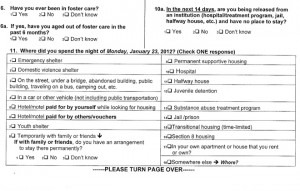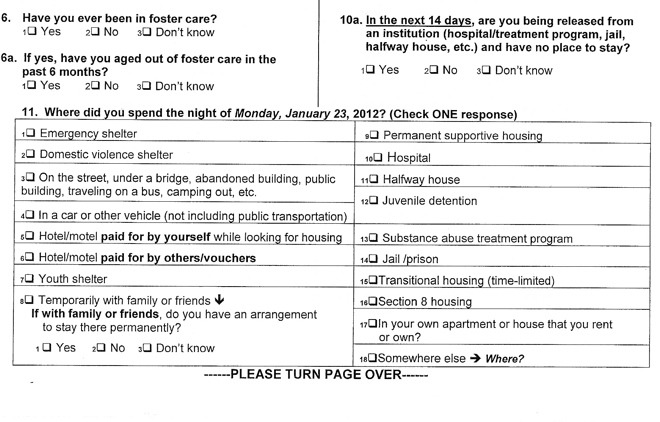
Last month I spent a few hours helping board member Karen Steele of the local non-profit Broomfield FISH conduct phone interviews for the Metro Denver Homeless Initiative‘s (MDHI) annual point-in-time survey of the homeless.
Karen and other FISH volunteers had already done most of the work during the morning of Tuesday, Jan. 24, but I did get a stack of clients to contact when I finally arrived to help. Most of the calls I made didn’t go through. Some rang without going to voicemail. Others didn’t go through because the number had been disconnected. Still others went to voicemail, but the voice mailbox was full. I left quite a few messages.
Some of the calls, however, did go through, and as I asked the questions on the survey I heard some heartbreaking stories. One in particular stands out to me. A married couple was living in their car right here in Broomfield, Colo., while their two kids were staying with relatives in another city on the Front Range. The husband had enlisted in the military and was getting ready to report for his first assignment, but his wife had a serious medical issue that was going untreated. Thankfully, they had an appointment at HHS for the following week, but he wasn’t sure how they were going to make it until he received his first paycheck in March.
With my awareness of homelessness and housing instability heightened, I started noticing others facing a similar plight. For example, I was on my way to meet a friend for coffee when I saw a family of three, including a husband, his wife and their two-year-old daughter asking for help by a stop sign near a local grocery store. They seemed far more uncomfortable asking for help than I was asking about their situation, but I soon learned they needed money to pay the rent for their Denver apartment. “How did you end up in Broomfield?” I asked. The husband had recently gotten laid off and hurt his knee, I’m not sure which came first. They had been unsuccessful getting donations on the street in Denver, so they rode the bus all the way to Broomfield hoping people here who would be generous and that there would be less competition for donations.
According to Sharon Farrell of Broomfield Health and Human Services (HHS), who oversaw the 2012 point-in-time survey for Broomfield, 166 people were initially confirmed homeless as of the day of the survey, down from 241 people last year. The nature of homelessness and the methodology of the survey, however, do not seem to lend themselves to hyper-accurate results, at least in the case of Broomfield. In my opinion, the survey undercounts, perhaps significantly, the number of people who are homeless in our area.
MDHI, which counts people temporarily living with friends among the homeless, will publish a full report on the survey later this year.


